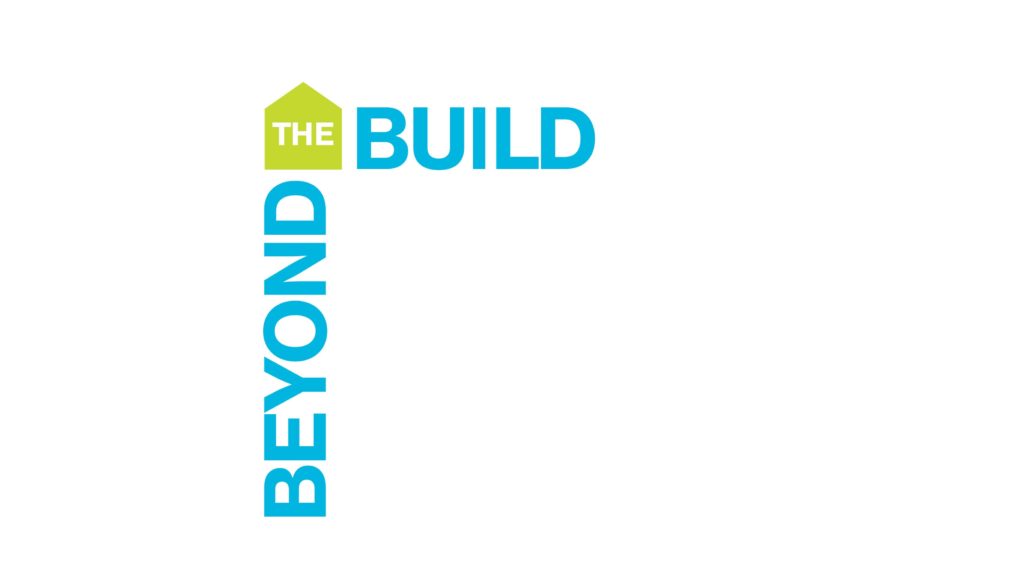Habitat for Humanity Canada Federal Pre-Budget Recommendations 2022
Habitat for Humanity Canada
August 2021 (Updated February 2022)
List of Recommendations:
Recommendation 1: Continue to enhance and refine investments under the National Housing Strategy to focus on the specific needs of those who need non-market affordable housing, and those who are building it.
- Review requirements of existing programs to ensure they are not creating barriers to building new supply.
- Expand the target of the Housing Accelerator Fund to include support for non-market housing solutions and consult with affordable housing providers while developing the criteria.
- Consider how the proposed Rent-to-own program could help put more families on the path to homeownership, particularly those living with low income.
Recommendation 2: Increase affordable housing providers’ access to affordable land, by:
- Introducing a new property acquisitions program to provide grants and loans to enable community providers to purchase and refurbish available properties for affordable purchase and rental, and to support land assembly.
- Act on the Minister for Housing and Diversity and Inclusion’s mandate to introduce enhancements to the Federal Lands Initiative and consider extending this initiative to allow for the exchange of surplus lands held by other orders of government.
- Ensuring that federal programs to support affordable housing are flexible enough to include creative arrangements to access land, such as long-term land leases.
Recommendation 3: Grow investments in affordable housing through strategies dedicated to addressing the gross inequity experienced by Indigenous people and BIPOC communities by:
- Move quickly to advance commitments to co-develop an Urban, Rural, and Northern Indigenous Housing Strategy.
- Maintain and expand focused funding streams and initiatives to address the housing needs of specific communities, like the $40 million partnership between Habitat and CMHC to deliver 200 homes for Black families across Canada.
Recommendation 4: Tie federal funding to other orders of government, whether through the Housing Accelerator Fund or other federal public infrastructure investments, to actions that will drive more the building of more affordable housing supply, including:
- Prioritizing available land for affordable housing.
- Changing zoning laws and processes to allow more affordable housing to be built faster and more cost-effectively.
- Offering property tax and development fee reductions or waivers to provide affordability for builders and buyers of affordable homes.
Recommendation 5: Fully leverage federal funding and partnerships to build more affordable homes that families can build equity in, including by:
- Ensuring that program requirements do not exclude non-market housing providers like Habitat for Humanity from accessing government funding.
- Waiving GST/HST for affordable home sales delivered through charities. Under the current program, consider a one-time adjustment to bring the GST/HST rebate better in line with housing markets, and index it going forward.
Recommendation 6: Take action to sustain Canada’s charitable sector, which provides critical services to Canadians, generates 8.5% of GDP, and employs 2.4 million people. This should include establishing a “home” for charities and non-profits within the machinery of government and providing matching donations or other incentives that will encourage charitable giving to support critical offerings.
Investing in affordable housing and homeownership will build a stronger future for families, communities, and our country
At Habitat for Humanity, we believe that everyone has the right to a safe and decent place to live, and that it benefits all of society when they do. That’s why we are looking beyond the build, to how decent housing transforms futures, strengthens communities, and fosters resiliency and stability that can transcend generations. We are committed to partnering with the government, with other affordable housing advocates, and with communities at most risk, including people who are newcomers, racialized, and Indigenous, on and off Traditional Territories, to tackle the housing crisis in this country.
Since 1985, Habitat for Humanity Canada, through 50 local Habitats and thousands of volunteers, has helped more than 4,000 working families become owners of safe and affordable homes. Our investments have made a difference. For every dollar Habitat for Humanity receives, $4 in social benefits are returned to the community. On average, our work generates $175,000 of benefits to society per partner family, resulting in multi-million-dollar contributions to Canadian society every year.
The impact of the pandemic has been acutely felt by families living with low income, accelerating housing prices and pushing homeownership further out of their reach. Investments to increase the supply of affordable housing can help address this gap and drive positive social and economic outcomes as the economy emerges from the crisis.
As a leading provider of affordable housing in Canada, Habitat for Humanity is on the frontlines of the housing crisis. By building strong partnerships with us, the federal government can continue to deliver results through the National Housing Strategy, advancing a shared vision that goes beyond the building of a home to delivering substantial social impact and economic benefits to families and communities across Canada.
Our shared challenge
It is estimated that the national average price of a home in Canada is now more than seven times the average household income, and that Canadian homebuyers must spend more than 50% of their total income to purchase a home. As the housing affordability gap continues to widen across the nation, families living with low income are becoming less likely to qualify for homeownership and struggling to access any form of affordable housing.
In 2018, 1,644,900 (11.6%) Canadian families were in core housing need, 628,700 (13.5%) were living in social or affordable housing, and more than 250,000 households reported being on a waitlist for social or affordable housing. Of the waitlisted households, 61% had been on a waitlist for more than two Habitat for Humanity Canada years.
Further, statistics from 2016 reveal that 18% of Indigenous households are in core housing need, and 20% live in households that are overcrowded and require major repairs. On average, Indigenous households are 1.4 times more likely to be in core housing need, and two times more likely to live in inadequate dwellings than non-Indigenous households.
We are seeing entire generations and groups of people giving up on homeownership completely and being left behind, putting more pressure on other parts of the housing continuum. Affordable homeownership can be the bridge that leads to stronger families, communities, and a more equitable country. Strong partnerships, such as the one between CMHC and Habitat Canada, can help to address these troubling realities.
Harnessing the impact of stable affordable housing and affordable homeownership
The recommendations we are advancing are aimed at helping Habitat and other affordable housing providers address urgent social and economic challenges that have led to societal inequities and prevented many Canadian families from achieving and contributing to their full potential.
Actions that support non-market suppliers of affordable housing will help smooth the path to homeownership for many more people living in Canada and provide access to the benefits of stability and self-reliance, as well as better health, education, and employment outcomes. We are pleased that Canada has joined other leading countries in creating a national housing strategy, and we recognize and applaud CMHC for its sustained focus on programs that support non-market providers. These program offerings have brought new players into the affordable housing space and helped to grow the impact of providers like Habitat, through the Co-Investment Fund. That said, the National Housing Strategy has focused more on funding solutions targeted at market-rate developers who include affordable options in their projects. While this can be beneficial, the National Housing Strategy programs should be reviewed for their success in creating affordable housing and a strong focus should continue to be placed on non-market specific funding streams.
Habitat for Humanity Canada welcomes the opportunity to contribute to the work of the House Standing Committee on Finance and looks forward to future discussions on how we can reach our shared objective of ensuring many more people in Canada have access to safe and affordable housing.
For more information contact Jackie Isada jisada@habitahm.ca Director of Government & Community Stakeholder Relations.

